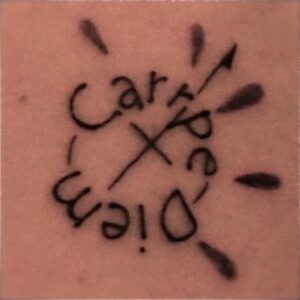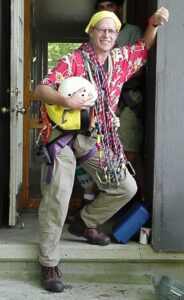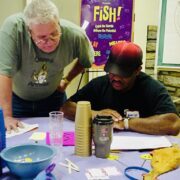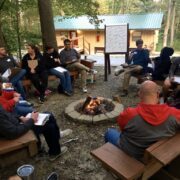One of the key conversations in my coaching work around finding a new position or career is about networking. How well does my client network with others? Networking is not what you know, it’s who you know. Who you know is key to creating a better future.
“The key to networking is to stop networking. Nobody wants to have a ‘networking conversation.’ They are hungry for real conversations and real relationships. It just has to be authentic, genuine, and sincere.”
– Greg McKeown, Essentialism: The Disciplined Pursuit of Less
What networkers don’t tell you, is that networking is like your smartphone – a source of distractions! You have to know what to avoid and focus on what is truly essential.
Your overall goal in networking is to be significant to those you meet. What value do you bring to the conversation? What is the value of knowing you? Your title, your status, and your success are about you, do nothing for those you meet.
Here are seven fundamental rules for effective networking.
First rule – is dress so as not to draw attention to your appearance, but to the conversation, you wish to have with others. This also means fresh breath, a warm smile, eye contact, and a good handshake!
Second rule – when you enter the gathering space, don’t wait to be found, go find! This may be a challenge for some introverts!
Third rule – have a crisp, professionally printed business card on high-quality thick card stock with your key contact information and some tagline that summarizes your purpose and hints at the value you may bring to your card’s recipient. Your business card is your one-of-a-kind miniature billboard. It helps create that positive first impression. It needs to be simple, clean, and easy to read. If you can’t get this info on one side of a business card, get help! There is lots of white space for my contact to jot down information.
Fourth rule – have plenty of business cards ready to hand out at all times. I always have cards in the chest pocket of my sport coat or suit. Extra business cards are in my business card case in my sport coat pocket as well as my billfold and briefcase…even more in the glove compartment of my car! Be prepared.
Fifth rule – If you have a drink, keep the drink in your left hand so your right hand is ready to shake hands (as well as not cold and wet!) Networking is not about telling, it’s all about asking and truly listening with good follow-up questions. This is at the heart of a real conversation and the beginning of a relationship. It is about being interested rather than interesting. People you come in contact with don’t care how much you know until they know how much you care. Great networkers ask great questions. The questions can be more important than the answers!
If someone shares something, refrain from telling your story on top of theirs. AND make sure you don’t try to one-up or compete with their story! Be secure in yourself. Ask another question about what they have just shared. And by all means, make sure your body language is in sync with your questions! There is nothing worse than asking a question as your eyes stray across the room!
A few of my favorite networking questions are:
– What has surprised or intrigued you about this gathering? Followed up with, That’s interesting! Tell me more!
– What are you expecting from being at this gathering? (This may be an opportunity to help make this happen!) Followed up with, That’s interesting! Tell me more!
– Who would you like to connect with here at this gathering? (You may be their connection and can help them out!) Followed up with, That’s interesting! Tell me more!
– What are you looking forward to doing or seeing? (Another opportunity for you to help make this happen!) Followed up with, That’s interesting! Tell me more!
– What has your interest and attention been on the Internet or what you are reading? Followed up with, ‘That’s interesting! Tell me more!’
Notice that none of these questions are: – What do you do for a living?
– How long have you been at __________?
– How long have you lived in __________?
– Do you know _________? He/she works in HR at your company.
– “I’m looking to ______________. Who do you know that I should be talking to?”
If the “What do you do for a living?” question pops out of your mouth (after all, we are creatures of habit!) follow it up with, “Wow, that sounds interesting!” or “Wow, that sounds hard!” or “Wow, that sounds amazing!” or Wow, that sounds awesome!” or “Wow, that sounds edgy!” This response shows you are interested and can get the person to share more.
Sixth rule – ask for a business card. Jot down the date and keywords about this connection.
Seventh rule – follow up with those you meet at the gathering, immediately. I recommend a handwritten, snail mail note with your business card telling the person you’d like to continue the conversation over coffee or tea. Then follow up with a phone call or email to make an appointment roughly 4 to 5 business days later.
Are there other networking behaviors you would add and recommend?
* This is an updated blog I posted in June 2015.



 r been, with great physicals and regular exercise. I was up on high rope courses, regularly facilitating groups from Procter and Gamble, Fifth Third Bank, and Cincinnati Childrens Hospital and Medical Center, to name a few.
r been, with great physicals and regular exercise. I was up on high rope courses, regularly facilitating groups from Procter and Gamble, Fifth Third Bank, and Cincinnati Childrens Hospital and Medical Center, to name a few.



